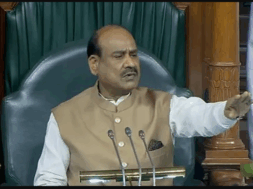
Manas Dasgupta
NEW DELHI, July 30: The classification of films by the Central Board of Film Certification (CBFC) is expected to be expanded to five sections from the present three even as the Board retains its censorship powers once the Cinematograph (Amendment) Bill, 2023, becomes a law.
The Bill was passed by the Rajya Sabha last week and is awaiting the nod of the Lok Sabha to become an act. The bill is expected to be moved in the lower house before the end of the current monsoon session on August 11.
The new move, partly based on the recommendations of the committee headed by the noted film director Shyam Benegal, will introduce graded age ratings for movies for the first time, allowing viewers — particularly parents — to take more factors into account when they watch a film, or when they let their children go unaccompanied to the cinema.
However, the changes fall short of what the Benegal expert committee had recommended to the Union government in 2017, to take away the censorship powers from the CBFC and become a mere classification authority.
From the existing system of U, U/A, and A the classification used by the CBFC to indicate films that can only be watched by minors if they have an adult accompanying them, U/A will now be split into three levels, U/A 7+, U/A 13+, and U/A 16+. This means, for instance, that minors who are 14 years old can watch films rated U/A 7+ and U/A 13+ unaccompanied. In theory, this could mean that films that deal with mature content could be released without being given an ‘A’ or adult only certificate, which the film industry usually dislikes due to the limited distribution it entails in cinemas.
Some filmmakers, who have spent their careers navigating the old ‘U’, ‘U/A’, and ‘A’ regime, are not too convinced about the material benefits of the proposed new system. Biju Janata Dal Rajya Sabha MP and film director Prashant Nanda said on Friday in Parliament, “When a filmmaker starts to make a film, he decides… who are his targeted audience. If his targeted audience is the entire people of this country, then he will make his film in such a way which will attract only ‘U’. But when he thinks that, ‘No, my film is for a certain group of people, and I don’t need children to see my film’, then [he] will make an adult film.”
The relevance of age ratings aside, the CBFC has retained its censorship powers, which it exercises even for films with the highest possible ‘A’ classification. Nudity is almost always censored in cinemas, as is a certain set of swear words across languages.
The persistence of statutory film censorship in an era of streaming and social media also provoked scepticism in the Parliamentary debate. Dr Nanda pointed out, “You can see that everybody has got a mobile, everyone has got television, and above all OTT [streaming] has also come, and what language they use!”
During the debate on the Bill, at least three MPs complained about swearing on streaming services, even though all ‘curated content publishers’ such as Netflix, Amazon Prime Video, or Hotstar provide graded age ratings to warn parents of content unsuitable for minors since the Information Technology Rules, 2021, were passed, and yet it is difficult for parents to keep the adult certified movies out of bound of the children.
Whether filmmakers get greater latitude from the CBFC for films that are not explicitly targeted at adults, and how far that freedom will extend, will become apparent when the first films with these new age ratings start releasing after the Bill is signed into law.
The bill as passed by the Rajya Sabha has stringent anti-piracy provisions, expanding the scope of the law from censorship to also cover copyright. The Bill proposes a jail term of up to three years and a fine up to 5% of a film’s production cost for persons who “use any audio-visual recording device in a place licensed to exhibit films with the intention of making or transmitting … an infringing copy of” a film, or trying to do so.
The Bill seeks to amend the Cinematograph Act, 1952, which authorises the CBFC to require cuts in films and clear them for exhibition in cinemas and on television. Information and Broadcasting Minister Anurag Thakur termed piracy as a “termite.”
Films rated for adults have largely been prohibited on television for years, following a 2004 Bombay High Court order. As such, broadcasters often cut films voluntarily, and re-apply with the CBFC for a U/A rating. The Bill formalises this practice, with language that allows films to be recertified for TV and “other media.”














